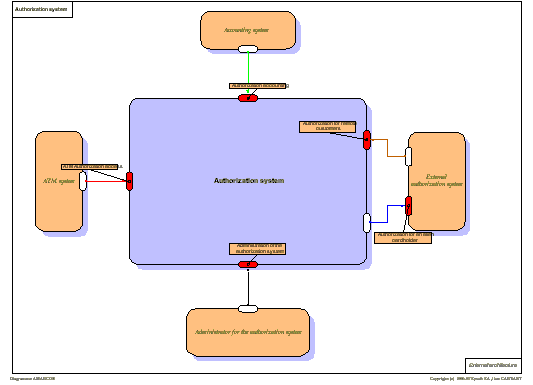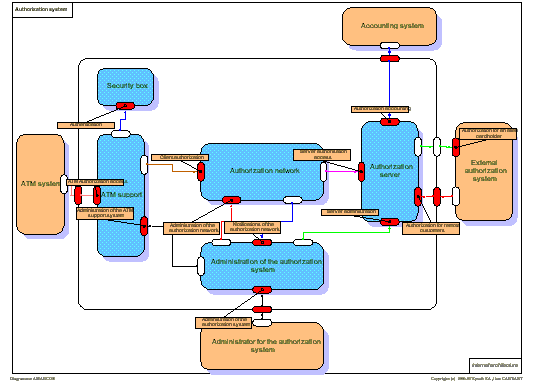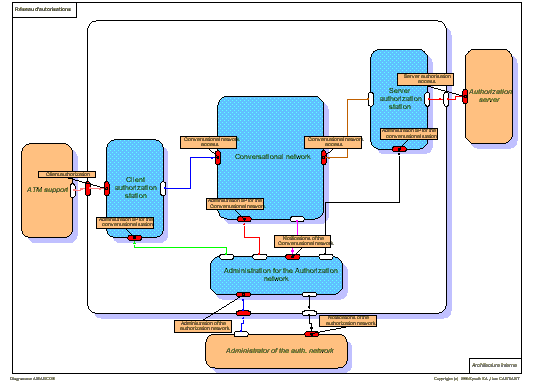|
|
Sysoft ® |
|
|
Services and structure
Authorization system - External Architecture The External architecture of the system shows the users of the system and the service points:
The picture shows also the service points (red for "server" Service Point, white for "client" Service Point):
A better view - the same image - JPEG (70 K) For example, the Authorization service point could support the following services:
The external architecture shows the purpose of the system. This global view tells what is the environment of the system and how the system is connected to this environment. With the service definitions you may ask prospective sellers about available products. Authorization system - Internal Architecture The internal architecture shows the component objects. The service points that were visible in the external architecture view are now mapped on the component objects. We can see now also other objects and service points that were not visible before.
A better view - the same image - JPEG (111 K). This picture is easy to understand, even by non-technical oriented managers! The information is organized in objects. It is possible to assign the objects to various people or organizations, to be taken in charge. It is clear which services concern each object, how the objects connect and communicate. The picture tells the whole story. At the same time there is rigor in this organization representation. All communications between the components take place only through service points, and we know which services belong to which service points. NOTE: The relationship that is depicted is not confined to technical domain. An enterprise is organized like that! Internal object - authorization network The internal objects that make the structure of the authorization system are seen as external architectures. Each one can be divided in the component parts. For example, the authorization network object may contain a conversational network.
A better view - the same image - JPEG (100 K) The conversational network may be divided at its turn in component parts etc. It is interesting to note that the conversational network object is not dependent on the authorization network. If there is another project, like a messaging system, the conversational network object can be reused. I think it is clear that the reuse concerns the specifications, the service definition and the paperwork that was needed to specify what a conversational network is like. It may lead to the reuse of the implementation of the conversational system, but this is not compulsory. What is reused is the know-how about the object, and this know-how can be applied to any technology! This page presents the services and the structure of the
authorization system. Another page presents the
behavior aspects. |
|||||||||||||||||||||||||||||||||||||||||
|


